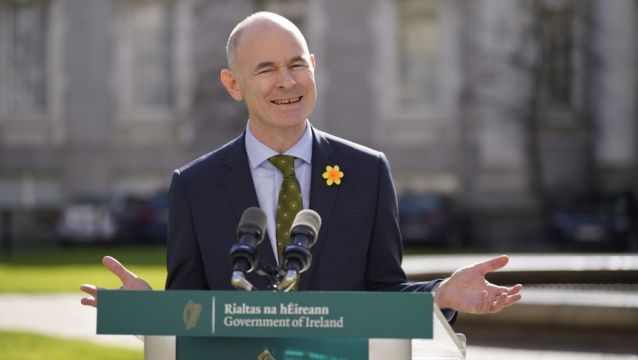Minister of State at the Department of Public Expenditure, National Development Plan Delivery Ossian Smyth has defended his party’s opposition to the addition of facial recognition technology to legislation current going through the Oireachtas on the use of body cams by An Garda Siochana.
Mr Smyth told RTÉ radio’s Today show that the Green Party was not opposed to the use of facial technology in some circumstances, they wanted separate standalone technology which would go through pre legislative scrutiny.
“I absolutely agree with the Garda Commissioner that it is very useful technology. We want the gardaí to have any technology that's needed to investigate serious crimes. So there's no real dispute there. What we've said is that we don't think it should be included in the body cam legislation, which is halfway through its process, that we think that it should be properly debated and that should go to the Justice committee.
"And in fact, the chair of the justice Committee, James Lawless agrees with us, and said that he feels that we should have a proper discussion about the whole of that technology, that facial recognition.”
Mr Smyth explained that during pre-legislative scrutiny the committee experts were brought in so the committee could consider what they think of the Bill and what amendments they'd like to see included.
“This isn't going to happen if we bring it in as an amendment later on and stick it into the Bill. It's a very significant piece of legislation. And we think that we need to make sure that it's done correctly. It has a significant effect on society.”
There were different types of facial recognition technology, he added. Technology that could scan a crowd and immediately identify people, like a car registration number - “it's equivalent to having a registration number around your neck to some extent. It's as if you are immediately recognisable and that's obviously very useful.
“If a serious crime has been committed, if a person has been abducted, and you need to find maybe the victim, you can find the person who carried out the crime, and you're under pressure for time. There are times where you do need to immediately recognise people using technology.
“But there are other times, you can imagine the use of this technology to indiscriminately scan across a crowd and pick out people immediately and out of that crowd and then just store that information because you might want to use it at some point in the future.
"You might store all the people who attended a particular protest, or you might just record people who were walking down the street and store that somewhere and then use that in the future for whatever purpose. And that then that morphs into mass surveillance. And mass surveillance is not it isn't really compatible with democracy."
Mr Smyth said there was no point in pretending that some police forces had abused such systems. “It's when you give somebody immense power, you need to have checks and balances to go with it. So really, it's just about making sure that the gardaí have the technology that they need to solve crimes, but that they have some rules or guidelines around it, some limits to that power, so that it's used correctly and not used indiscriminately because it's tempting when you have something very powerful to use, use it all the time.

“Really, it's about getting that right. So you think about the situations where it would be useful to solve a crime and missing persons. And the Gardai have also outlined other situations, but we haven't actually seen what the amendment is. We don't know exactly what it is that they're going to put in.
“I think it would be really good to get the input from people who have been victims of crime and civil liberties, anybody with a view on this, to actually properly debate it, because it's a major change in society. And I think that it's something that we should look at properly.”
Mr Smyth said that pre-legislative scrutiny could happen within months. There was a balance of rights to be determined. The right to privacy and the right to live in a safe environment. That was why debate on the issue was important.
“The real question is, where do we draw the line on what's a serious crime? That's something that we should properly debate and not just put through as a broad power for the gardaí, without considering it properly.”







